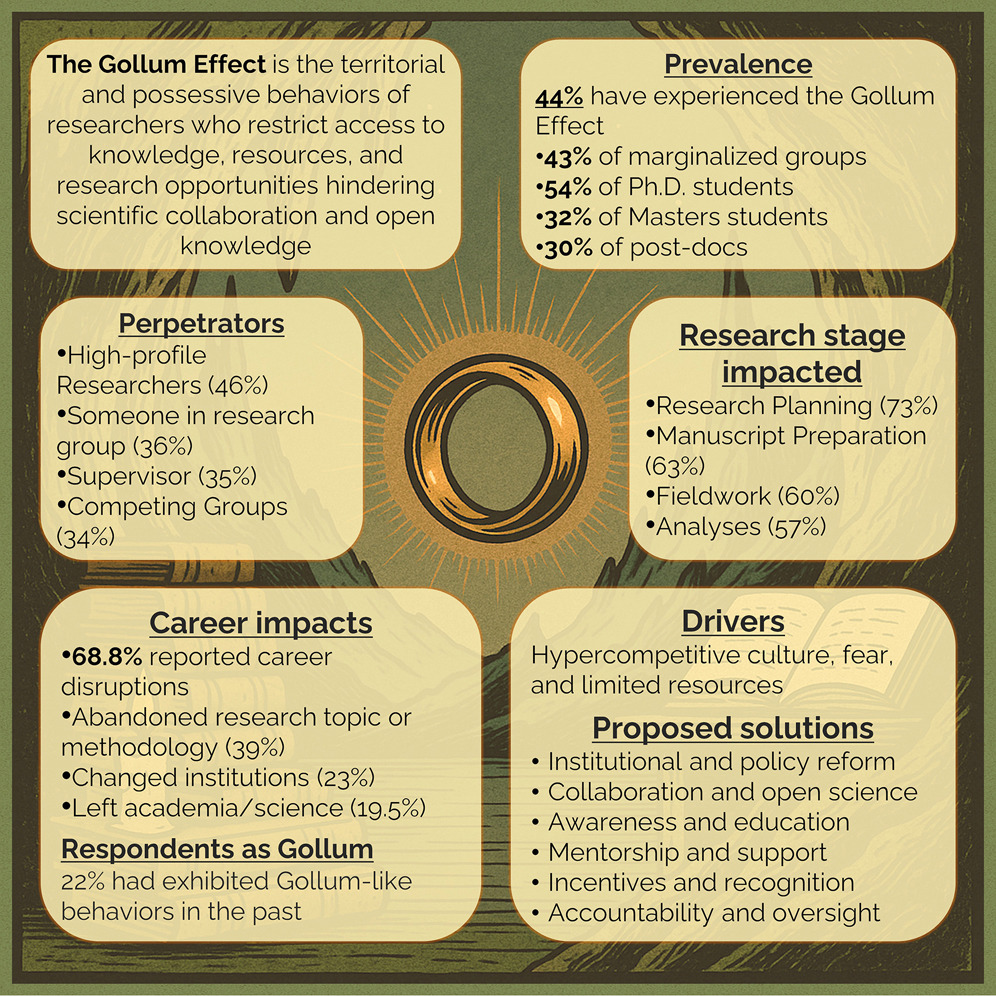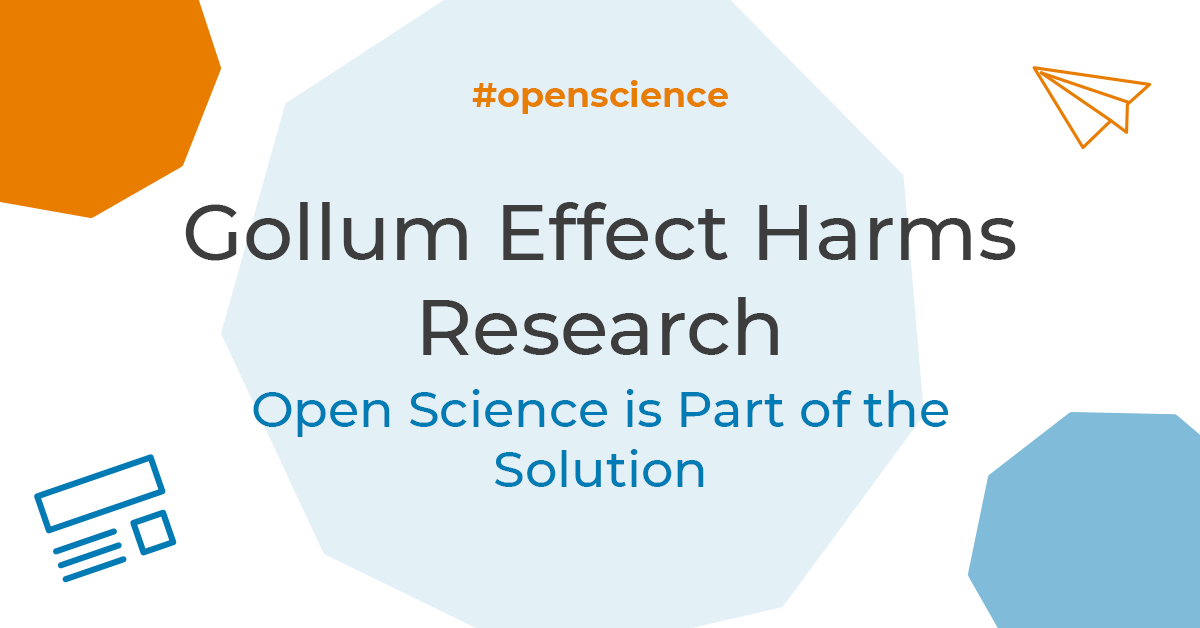Possessive and territorial behaviours among researchers, which hinder collaboration and the free flow of information and thus scientific progress, are referred to as the Gollum effect. Such behaviour includes, for example, a reluctance to share data, methods, research topics or even research areas. A new study looked at the Gollum effect and also investigated what could help to mitigate it.
Collaboration and knowledge sharing are generally considered to be cornerstones of scientific progress. The recently published study ‘Systemic territoriality in academia: The Gollum effect's impact on scientific research and careers’ addresses an important obstacle to collaboration and thus to scientific progress.
Restrictions on research opportunities
The Gollum effect describes the territorial and possessive behaviours of researchers that hinder research opportunities and collaboration. This includes an unwillingness to share information, data, resources and methods, but also research topics or even entire fields of study. The term is an allusion to the character Gollum from The Lord of the Rings, who displays secretive and possessive behaviour.
According to the study, the Gollum effect disproportionately affects young researchers and marginalised researchers. Senior researchers, research group members, supervisors and competing groups are often the perpetrators. They use this behaviour to gain advantages, such as establishing a research monopoly, but in doing so they undermine science and delay new scientific discoveries that could lead to decisive breakthroughs.
Many researchers affected
The study focused on researchers in ecology and nature conservation and found that 44% of researchers in this field had experienced the Gollum effect. However, it can be assumed that the Gollum effect also has an impact in other disciplines. More than half of those surveyed experienced it during the doctoral phase of their career.

Significant impairment of research work and careers
The Gollum effect often has serious consequences. More than two-thirds reported disruptions to their careers. This included having to abandon topics, change their methods, switch institutions or fields, or leave science altogether.
For almost three-quarters, the Gollum effect disrupted research planning, and for almost two-thirds, it disrupted manuscript preparation. Research topics were the primary target of the Gollum effect (72.1%), followed far behind by study types, study locations, and methods.
The Gollum effect is systemic
As the results show, the Gollum effect is a systemic problem in science. A cultural change is therefore urgently needed to work together to solve important global problems. Institutional reforms, Open Science guidelines and measures to promote accountability can contribute to this.
One-fifth of respondents said they exhibited similar behaviours themselves. These behaviours are apparently fuelled by the hypercompetitive ‘publish or perish’ culture in science, fear, limited resources and career opportunities. Possessive and territorial behaviour patterns can lead to a self-perpetuating cycle because former victims may unconsciously behave in the same way or because young researchers learn to imitate these behaviours.
Potential solutions
Six key approaches that could mitigate the Gollum effect were identified among the respondents:
- Workshops, training courses and institutional discussions to promote understanding and prevent exclusionary behaviour.
- Stable funding for early-career researchers, as well as the adaptation of recruitment criteria and criteria for the evaluation of scholarships, so that mentoring and collaboration are given greater importance than pure publication performance. In addition, the introduction of clear guidelines for data ownership and authorship that prevent territorial exclusionary behaviour.
- Measures that promote Open Science and collaboration, such as mandatory provision of Open Data, interdisciplinary teamwork and recognition of non-traditional research contributions, including technical support and data management.
- Independent reporting mechanisms, double-blind peer reviews and team-based decision-making to reduce bias in funding and hiring.
- Better training for mentors, external monitoring of student progress, and peer support networks to help early-career researchers navigate an exclusionary environment.
- Scholarships and awards that emphasise teamwork, ethical research practices and contributions that go beyond first-author publications, thereby moving academic culture away from excessive competition.
The Gollum effect is currently damaging research and academic careers. Open science could help mitigate this effect and thus be part of the solution.
If you would like to learn more about Open Science, you will find numerous introductory articles in the Open Economics Guide and an extensive catalogue of tools.
